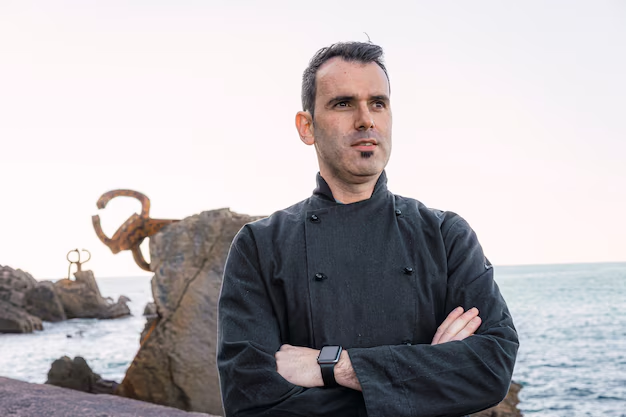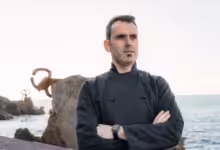John Sweeney: Insightful Journalist & Author

John Sweeney is one of the most influential investigative journalists and authors of our time, known for his relentless pursuit of truth. With a career spanning several decades, Sweeney has established himself as a credible, fearless, and highly skilled reporter and storyteller. His work, often spotlighting corruption, social injustice, and human rights violations, reflects his commitment to bringing attention to stories often overlooked by mainstream media. This article delves into John Sweeney background, contributions, journalistic style, and notable achievements, showcasing how his career has shaped modern investigative journalism.
Early Life and Career Beginnings
John Sweeney was born in 1958 in St. Helens, Merseyside, England, to a working-class family. His early life experiences contributed to his sense of justice and curiosity about the world, shaping him into the journalist he would become. After completing his studies in politics at the London School of Economics, Sweeney embarked on a career in journalism, eager to use his education and personal insights to report on issues of global significance.
His career took off in local newspapers, which provided him with a solid foundation in storytelling, ethics, and investigative techniques. His hard work and dedication paid off when he joined The Observer, a major British newspaper known for its in-depth coverage of social and political issues. At The Observer, Sweeney sharpened his skills, often reporting on complex stories that required courage, insight, and persistence.
Key Areas of Reporting
Human Rights Violations and War Reporting
John Sweeney’s reporting has frequently focused on regions affected by conflict and authoritarianism. His work has shed light on human rights abuses, war crimes, and the impact of political regimes on vulnerable populations. Notably, Sweeney reported extensively from conflict zones such as Iraq, Afghanistan, and Chechnya. His coverage of these regions has given the public a glimpse into the harsh realities faced by those living in war zones and under oppressive governments.
Sweeney’s experiences in these areas have not only shaped his career but also reinforced his commitment to delivering honest, unbiased accounts of events. His journalistic style is direct and fearless, often challenging powerful entities and figures who exploit their positions. This approach has gained him both respect and criticism, with some viewing him as a necessary voice in a world where truth can often be suppressed.
Exposing Corruption and Corporate Malfeasance
Apart from his coverage of war and human rights, Sweeney has also been known for his work uncovering corporate corruption and malfeasance. His investigations have targeted organizations and individuals engaging in unethical practices, often bringing to light actions that would otherwise go unnoticed. His work on corruption has led to public debates, policy changes, and legal actions in cases where companies or institutions were found to be in violation of laws or ethical standards.

Scientology Investigation
One of Sweeney’s most famous—and controversial—investigations involved the Church of Scientology. In 2007, while working with the BBC’s Panorama, Sweeney conducted a deep investigation into the organization. His documentary, “Scientology and Me,” was highly publicized, particularly due to a widely shared clip in which Sweeney, frustrated by the intense pressure from church representatives, lost his temper on camera. Despite the controversy, the documentary brought significant attention to Scientology’s practices and led to a broader discussion about the organization’s treatment of critics.
Style and Approach to Investigative Journalism
Sweeney’s style is defined by a no-nonsense approach and a willingness to question powerful individuals and institutions. He is known for his immersive reporting, often going undercover or putting himself in risky situations to gather firsthand information. Sweeney’s approach is guided by a belief in journalism as a tool for societal change. His work emphasizes the need for transparency, holding those in power accountable and giving a voice to the voiceless.
His commitment to his craft sometimes places him in dangerous situations, but he considers this a necessary aspect of meaningful journalism. Sweeney’s method emphasizes extensive research and fact-checking, ensuring that his findings are both accurate and impactful. This dedication to truth and accuracy has garnered him a strong reputation and the respect of his peers and audiences worldwide.
Publications and Notable Works
Sweeney is also an accomplished author, with several books to his name. His publications often reflect the themes of his journalism, including political corruption, human rights issues, and investigations into powerful organizations. His book, The Church of Fear: Inside the Weird World of Scientology, provides a detailed account of his experiences investigating Scientology and the challenges he faced during the process. Another notable work is North Korea Undercover: Inside the World’s Most Secret State, where he documented his journey into North Korea and the conditions he observed under the authoritarian regime.
His books not only reach audiences interested in journalism and politics but also serve as resources for those who seek to understand complex global issues from an insider’s perspective. Sweeney’s works are celebrated for their insightful analysis and engaging storytelling, bringing readers into the heart of the issues he covers.
Challenges and Controversies
Throughout his career, Sweeney has faced numerous challenges, including threats, legal battles, and intense scrutiny. His uncompromising style has sometimes led to confrontations with powerful organizations and individuals, making his career a testament to the potential risks involved in investigative journalism. While some critics argue that his approach can be too aggressive, Sweeney sees it as a necessary means to uncover the truth. He has stated that his role is to serve the public by exposing injustices, even if this requires personal and professional sacrifices.
Impact and Legacy
John Sweeney impact on journalism is profound. His career has not only influenced investigative journalism but has also inspired a new generation of reporters who are unafraid to tackle challenging and sensitive topics. His work has underscored the importance of free press in democratic societies and has demonstrated how journalism can serve as a catalyst for change.

Sweeney’s legacy is built on his commitment to the truth and his resilience in the face of adversity. His contributions have led to policy changes, greater awareness of global issues, and a deeper understanding of the role that journalists play in society. Today, Sweeney’s work continues to inspire, and his approach to journalism remains a benchmark for integrity and courage in the field.
Conclusion
John Sweeney career as a journalist and author exemplifies the power of the press to uncover hidden truths and challenge those who misuse their power. His reporting on human rights violations, corporate corruption, and controversial organizations has made a lasting impact, showing that journalism, when pursued with dedication and courage, can influence society for the better. Sweeney’s work stands as a reminder of the importance of a free, bold, and ethical press—a beacon for aspiring journalists and a testament to the resilience of truth in the face of power.

